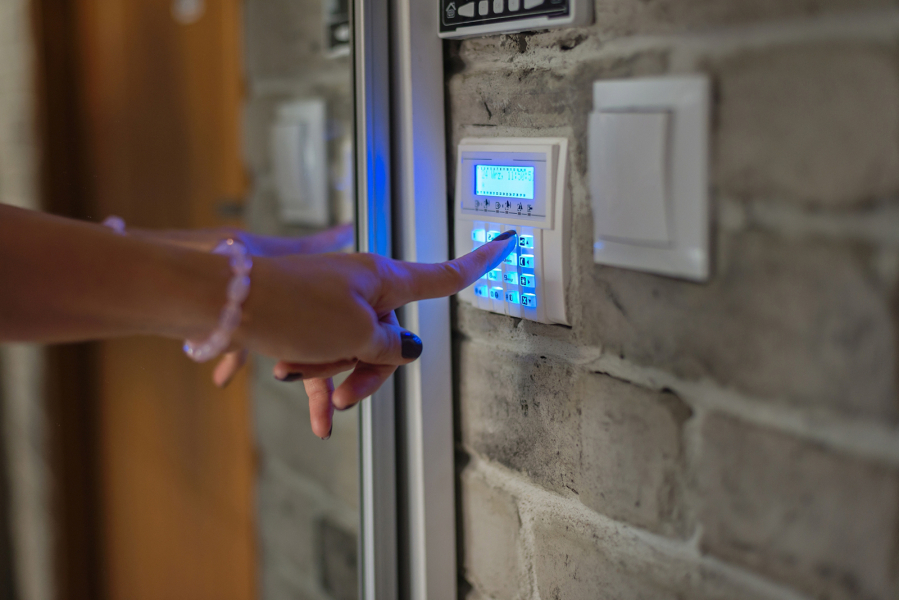To ensure that you select an appropriate home security system for your needs, think about the features that will make you feel safe as well as what you can afford.
“Some people like to keep it simple with a traditional security panel, while others like added features like outdoor cameras and security lights. Think about which features would be most beneficial to your household,” suggests Micetich.
In addition, ponder factors like cost, contract length, if the system is monitored or unmonitored, “and integration with other smart home devices,” Yang advises. “Always read reviews, and maybe even ask neighbors or friends for recommendations.”
Here are some of the most popular home security system companies/brands:
Ring
Price: $200 and up for hardware; $200 a year and up for professional monitoring subscription
Pros: They offer affordable monthly fees and don’t require a long-term contract.
Cons: They have limited compatibility with other smart home technology.
Abode
Price: $140 and up for hardware; $220 a year and up for professional monitoring subscription
Pros: They offer low-cost, on-demand professional monitoring without long-term contracts and integration with smart home technology.
Cons: Their starter kits come with limited devices, and 4G cellular backup is only available with the Pro Plan.
SimpliSafe
Price: $250 and up hardware; $30 a month and up for professional monitoring subscription
Pros: They have lower monthly fees for monitoring, and don’t require a contract.
Cons: They have a higher upfront cost for equipment, and the lack of facial recognition can trigger false alerts.
Cove Security
Price: $229 and up hardware; $18 a month and up for professional monitoring subscription
Pros: They offer flexible monthly costs and compatibility with Alexa and Google Assistant for smart home upgrades.
Cons: They don’t offer outdoor cameras and have limited self-monitoring options.
ADT
Price: Hardware is customizable so prices will vary; $46 a month and up for professional monitoring subscription
Pros: They have a long-standing reputation and offer comprehensive professionally installed central monitoring services.
Cons: They are more expensive than other companies/services.
Brinks
Price: $200 and up for hardware; $39 a month and up for professional monitoring subscription
Pros: They offer good customer service and reliable equipment.
Cons: Their contracts can be long and expensive.
Vivint
Price: Hardware is customizable so prices will vary; $20 a month and up for professional monitoring subscription
Pros: They offer advanced tech features and flexible pricing.
Cons: Some consumers have complained of aggressive sales tactics.



